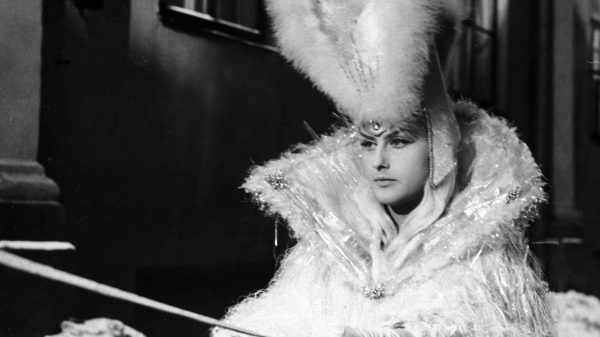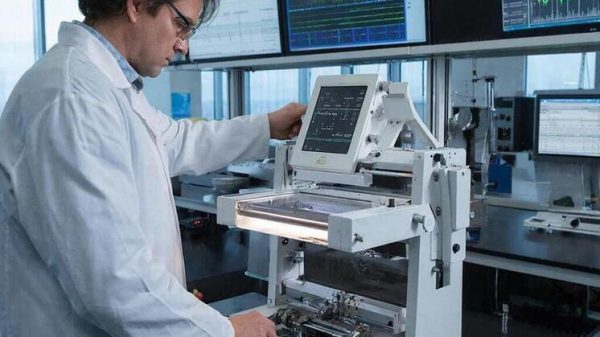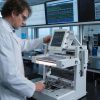
Berkeley Street in Mayfair is a Mecca for luxury car lovers, dotted with car showrooms where Ferraris and Bentleys are displayed behind giant windows and McLaren. Halfway down the road from the Rolls Royce boutique is a lesser-known name.
Last year, Chinese car company BYD opened its own luxury showroom in the space formerly occupied by Jaguar Land Rover.
BYD's cars cost much less than other cars on Berkeley Street, but the company's presence among the world's most desirable cars makes it clear that the company believes it can compete.
This week it had proof. BYD said it sold 526,409 electric vehicles in the last three months of 2023, overtaking Tesla and ending the Elon Musk-led company's eight-year reign as the world's top-selling electric vehicle maker.
It was a significant moment. After BYD surpassed Tesla, excerpts from a 2011 interview circulated online in which Musk ridiculed the Chinese company, chuckling disdainfully when asked if they could compete (Tesla's executive has now acknowledged them as a serious competitor).
< img src=" /wp-content/uploads/2024/01/6fd81ea70a00c76ab1bc2ac66349b190.jpg" /> BYD Chief Executive Wang Chuanfu is determined to make the automaker a global leader. Photo: Victor Moriyama/Bloomberg
But for BYD's billionaire founder Wang Chuanfu, this is just the beginning. The company, China's dominant automaker, now plans to take on the rest of the world by aiming to become one of the few Chinese consumer companies that can become a recognized global leader.
In August, Wang said the company would help “break old [Western] legends and create new world-class brands.” The company's aggressively priced electric vehicles are gradually appearing on the streets of the UK and Europe.
BYD's rise has been rapid, but it is far from a newcomer. In the early nineties, Wang, a chemistry graduate working as a researcher for the Chinese government, saw an opportunity to develop new types of batteries pioneered by Japanese firms, but with much cheaper Chinese labor costs. BYD, which he founded in 1995, soon became one of the world's largest manufacturers of mobile phone batteries. The business has made Wang a fortune worth hundreds of millions of dollars.
In 2003, the company bought out a struggling domestic automaker in an attempt to explore nascent electric vehicle technology, something shareholders rebelled against. At the time, Chinese cars were considered cheap, ugly and unreliable, and BYD's early efforts were no different: «Have you seen their car?» Musk joked in 2011.
BYD got its big break in 2008 when Berkshire Hathaway, run by legendary investor Warren Buffett, bought a 10 percent stake. But as recently as 2019, Wang said, the company was struggling to survive.
However, the company's early efforts in electric vehicles and prowess in battery manufacturing meant it was well prepared for the subsequent influx of Chinese consumers looking for «new energy vehicles».
Compared to established American and European automakers, which have outsourced parts to suppliers like Bosch and Continental for decades, BYD makes almost every component of its cars. cars, even owning a number of lithium mines.
According to a teardown analysis by UBS, 75 percent of BYD Seal sedans are produced in-house, compared with 68 percent of U.S.-made Teslas. Model 3 and only 35 copies of the German-made Volkswagen ID.3.
This gives the company cost control that European brands cannot match. UBS estimates that even if BYD moved production to Europe to avoid tariffs, it would have a 25 per cent cost advantage over «legacy» manufacturers, with Volkswagen losing $10,000 (£7,900) per car if it matched the price BYD.
BYD has had a presence in the UK for many years as the UK's leading supplier of electric buses, in partnership with Falkirk manufacturer Alexander Dennis.
More than 1,000 double-decker buses in the country have been built with BYD, and the company lobbied MPs for environmental issues as far back as 2015 vehicle certificates, criticizing the fuel duty freeze as discouraging electric vehicle drivers.
The company entered Norway in 2020 and launched its first model for sale in the UK in March last year. True to form, BYD's £25,490 Dolphin is the cheapest full-size electric car on sale in the UK, although David Bailey, a car manufacturing expert at the University of Birmingham, says it can compete on quality too, thanks to innovations such as more efficient batteries. “Because of their experience at scale, they are leading the way in terms of attractive entry-level electric vehicles, but they can also take over the premium sector,” Bailey says.
Critics agree, praising the cars. In December, BYD announced it would open its first European plant in Hungary.
But the company's rise to the forefront of a wave of new Chinese manufacturers has not gone unnoticed. In October, the European Union launched an investigation into whether Chinese automakers benefited from government subsidies to undercut European rivals.
The move is expected to lead to higher tariffs, although Jim Saker, president of the Institute of the Motor Industry, says German fears of reprisals could limit any action.
Concerns about economic dependence on China are also growing in Britain. MPs on the House of Commons Business and Commerce Committee have launched an inquiry into economically important industries, which are likely to include the car industry.
“Our national interests require that we have a clear vision of how we deliver climate security, economic security and job security for Britain's future,” says committee chairman Liam Byrne. «Right now I'm not sure the UK has a plan for the future.»
However, Saker says any attempt to stifle Chinese auto companies would run counter to net zero goals. “Boris Johnson handed over the car industry to the Chinese when he introduced a 2030 ban on petrol and diesel sales, which Rishi Sunak delayed but which Sir Keir Starmer promised to restore].”
“Because everyone has chosen the electric vehicle route , this has played into China's hands: European, Japanese and American manufacturers have had to radically change their strategy to catch up and compete.»
Sir Iain Duncan Smith, the former Conservative leader, says China has a «vicious power over market for electric vehicles, and the more we strive for electric vehicles, the more we are putting our fate in the hands of China,» calling for a delay in the gasoline ban until a broader strategy to counteract it can be agreed upon with the country's automakers.
< p>BYD, for its part, shows no signs of resting on its laurels. The company plans to open 100 dealerships in the UK by the end of next year through agreements with the likes of Pendragon, Arnold Clark and Lookers. This may be good news for Britain's net zero goals, but skeptics will say it comes at a cost.






















































Свежие комментарии